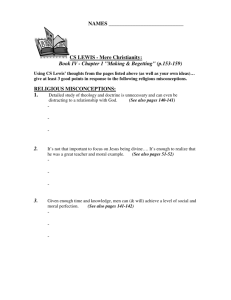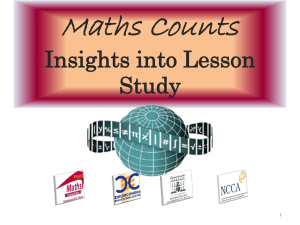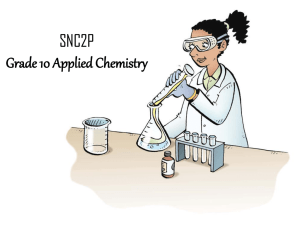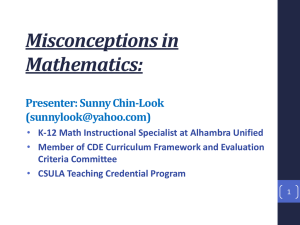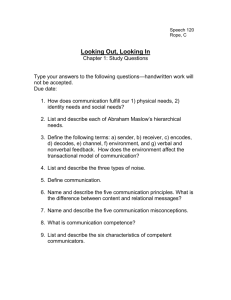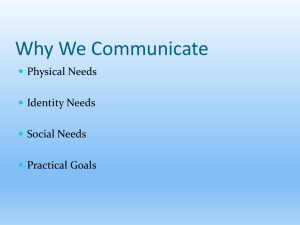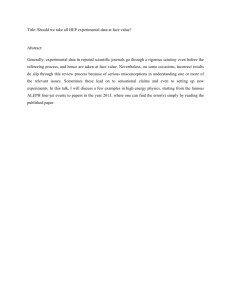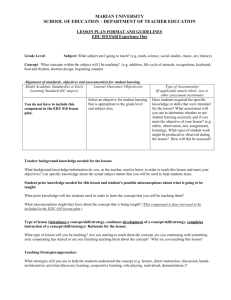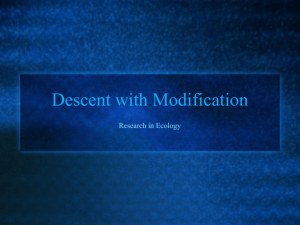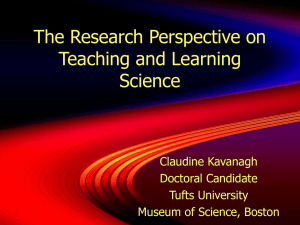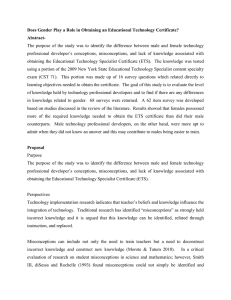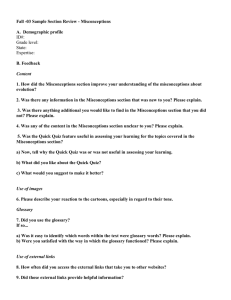Power Point Presentation
advertisement
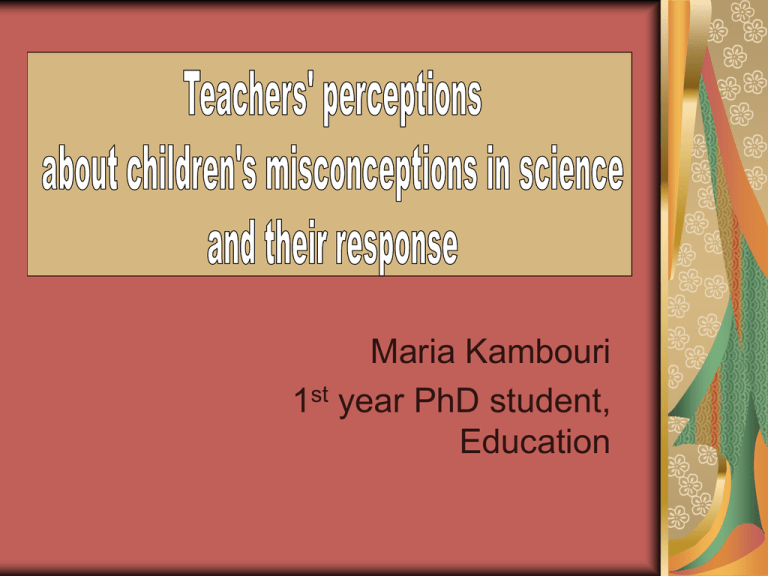
Maria Kambouri 1st year PhD student, Education My own experience Children have a lot of ideas, especially in science, that lead to mini-theories which are children’s own explanations about how our world work Sometimes these ideas do not agree with what is generally accepted by the scientific community and These ideas can make learning more difficult for children Video This is a scene from a movie that shows a mother sitting with her 5 year old son at a beach watching the sunset. This is their conversation: Boy: Mum, why sun dives in the sea? Is it because he feels hot? Mother: Sun doesn’t dive in the sea (smiles). Boy: Yes he does! Mother: The earth is round and sun goes around. Boy: Earth is straight! Mum, are you blind? Mother: Honey, don’t insist. Galileo will come back from the dead if he’d listen to this! Boy: You know NOTHING! http://vids.myspace.com/index.cfm?fuseaction=vids.individual& VideoID=57554802 Nowadays, it is generally accepted that children do not come to school as a “tabula rasa” (Pine, Messer, John, 2001). They bring with them ideas about the world around them and how and why it works (Bradley,1996). From the moment of birth, or even from the conception, children are developing scientific ideas about the world around them (Johnston,1995). These concepts are multiply held and often inconsistently applied by the children and, the most important, that they are remarkably resistant to change (Black & Lucas, 1993). Children make assumptions, about how the world works, which are based on conceptions and ideas learned through everyday activities. Children’s assumptions can be logical and reasonable but still can prevent the understanding of scientific concepts as they can lead to inaccurate conceptions, called misconceptions (Eaton, Anderson & Smith, 1984). Misconceptions can make learning a difficult procedure for a student (Eaton, Anderson & Smith, 1984). Leaving children to their misconceptions and hoping that they will overcome them is unfair (Schmidt, 1997) Statistics suggest that teachers seldom have the time to identify children’s misconceptions and are often forced to assume a certain base of students knowledge (Chen, Kirkby & Morin, 2006) Aim of Study and Design Discover teacher’s perceptions of children’s misconceptions in regard to science Investigate how teachers respond to them when planning and teaching a lesson. The research is based on case studies of Cypriot preprimary and primary teachers. The use of case study may help generalise for Cyprus as a whole. A sample of teachers from all schools of south Cyprus teaching 3-7 year old children is used. Main Research Questions What are teachers’ perceptions of children’s misconceptions about science and how do they identify them? How do teachers link children’s misconceptions with a new concept when planning a lesson? How do teachers respond and use children’s misconceptions during lessons? How confident do pupils feel during science lessons to make mistakes and ask questions? Methodology Questionnaires: designed, piloted and sent to 150 schools pre-primany and primary schools in Cyprus. Key informant interviews: Professors at Cypriot Universities. Observations of teachers teaching specific science topics selected from the national curriculum. Post-test and pre-test trials designed by the researcher and teachers. Two focus group interviews: one with preprimary teachers and one with first grade primary teachers. During my first year as a research student I came across lots of difficulties like for example: I couldn't find specific bibliography about misconceptions and the situation Cyprus I also found it hard to decide the age group I should focus on and the population Finally, it was hard to choose the science topics that I should focus on as there are too many topics in science I would be happy to answer to any questions! THANK YOU FOR LISTENING!
